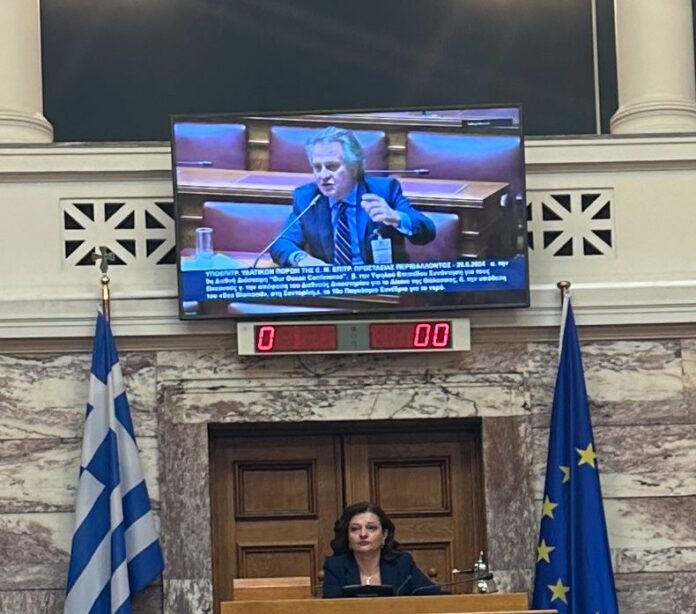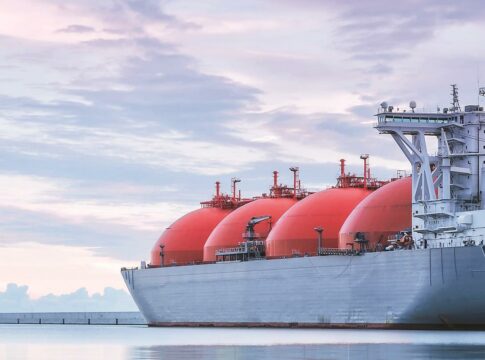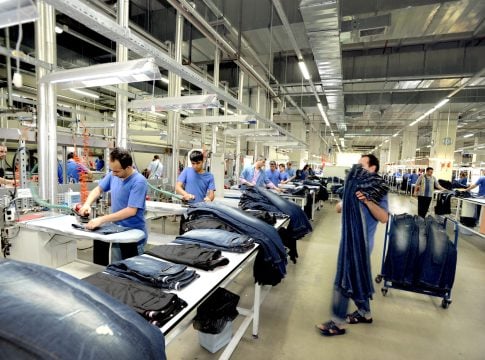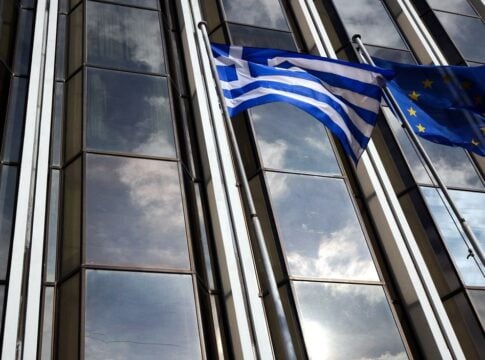The president of the Hellenic Shortsea Shipowners Association (EENMA), Charalambos Simantonis, participated in the meeting of the Water Resources Subcommittee of the Special Standing Committee on Environmental Protection of the Parliament, which was chaired by the committee’s president, Dr. Dionysia Avgerinopoulou.
Simantonis pointed out that shipping traditionally takes the lead at a global level and promotes the need to safeguard the environment through harmonized green initiatives and specifically referred to the importance of short sea shipping for Europe and Greece.
“Our Association officially announced a proposal for the inclusion of the national transport fleet in the Recovery Fund for the green transition, as it is being promoted for the coastal shipping thereby expanding everyone’s goal for decarbonization, modernization but also sustainability,” Simantonis noted and added:
“The European Union has highlighted short sea shipping as a sector of high importance, since on the one hand it ensures the transport of goods inside and outside the Union, on the other hand it is a reliable option for replacing road transport and achieving the goals for reducing the carbon footprint of transport by 60% in 2030, as well as turning 30% of road transport over 300 km to other modes of transport.
The importance in the Greek economy extends to various dimensions. Mainly, it ensures the seamless transport of goods and fuel to the islands, ensuring economic development and social cohesion, while in addition, the operation and management by shipping companies established in Greece, creates multiplier benefits for the Greek economy and especially for the port of Piraeus, which is the home port of these ships.”
The President of EENMA underlined that “nevertheless, the prospects for maintaining and strengthening the sector in the Greek economy are faced with significant challenges. The need to decarbonize transport and the EU and IMO targets are creating new conditions for shipping, affecting its competitiveness and creating conditions that risk an increase in road transport demand resulting in delays regarding the emissions reduction target.”















